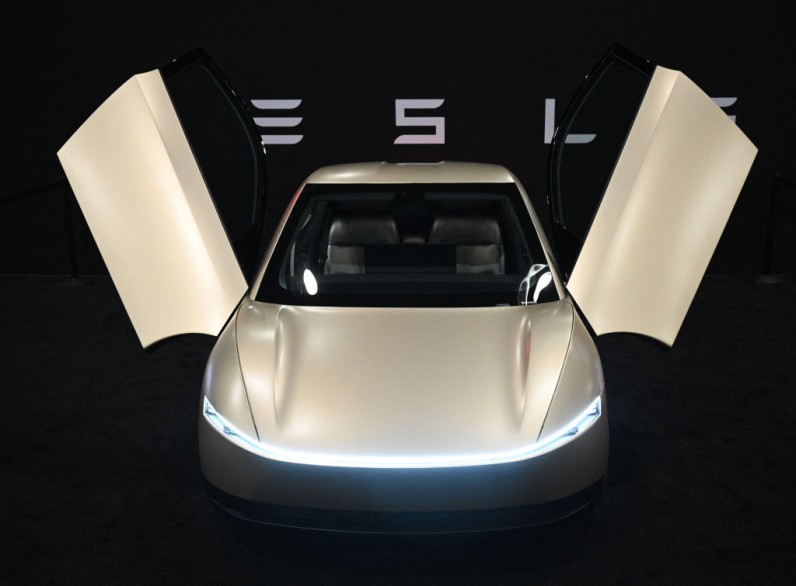
Elon Musk has revealed that Tesla's long-anticipated robotaxi service will launch in Austin, Texas, on June 22. He described it as the company's most significant product so far.
The launch, which has been delayed for years, is expected to begin with around 10 self-driving cars and could expand rapidly if it proceeds smoothly.
According to AP, Musk posted on X (formerly Twitter) that the rollout date is tentative, saying Tesla is being "super paranoid about safety."
The robotaxis will initially operate only in geofenced areas of Austin—specific parts of the city deemed safe enough for self-driving vehicles. Tesla's cars will be monitored remotely in real time.
This move comes at a time when Tesla's profits have fallen sharply. Tesla reported a net income of $7 billion last year, representing a 53% decrease from the previous year. Musk and investors believe robotaxis could change that.
He told investors earlier this year, "I think this will be the largest asset value increase in human history."
The robotaxi service will initially use modified Model Y SUVs. A new version of the robotaxi with no steering wheel or pedals—called the Cybercab—is not expected until 2026.
Tesla's self-driving system, known as Full Self-Driving (FSD), relies on cameras and artificial intelligence, rather than the lidar sensors used by other companies, such as Google's Waymo.
“Tesla Robotaxi is set to revolutionize modern transportation.”
— TESLA CARS ONLY.⚡ (@teslacarsonly) June 10, 2025
— Elon Musk pic.twitter.com/SM6wd5W5hG
Read more: Tesla Special Committee To Review Elon Musk's Compensation Package Amid $56B Pay Deal Appeal
Tesla's Robotaxi Isn't on the Road—But Waymo Already Is
Waymo is already a step ahead, offering 250,000 paid robotaxi rides each week across four US cities, including Austin.
Experts like Bryant Walker Smith from Stanford say companies like Waymo have built robust systems, while Tesla is still catching up, according to CNN. "There are real robotaxis on the road today. None of them is a Tesla," Smith said.
Still, Musk remains confident. In an April earnings call, he said, "I don't see anyone being able to compete with Tesla at present... Tesla will have 99% market share or something ridiculous."
But there are safety concerns. The US National Highway Traffic Safety Administration is currently investigating Tesla's FSD after reports of crashes, including one that killed a pedestrian. The car had trouble in low-visibility conditions, like glare and fog.
Musk has rejected criticism of Tesla's camera-only system, calling lidar "friggin stupid." However, experts argue that lidar is more reliable in spotting hazards, especially in poor visibility conditions.
Despite the hype, some believe the June 22 launch is more about proving a concept than launching a full-service. Analyst Gordon Johnson called it "a Tesla proof of concept exercise, not a rollout."







Join the Conversation